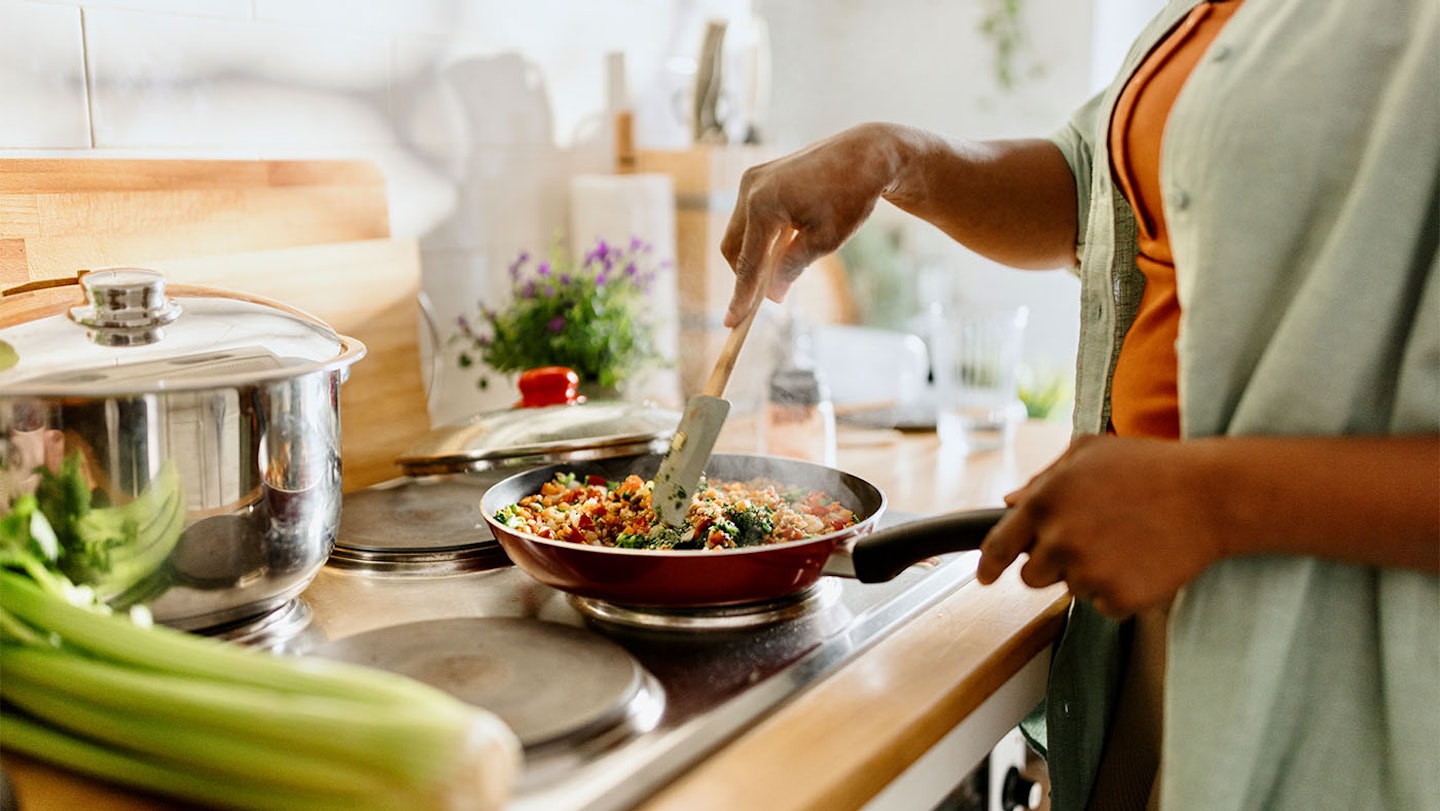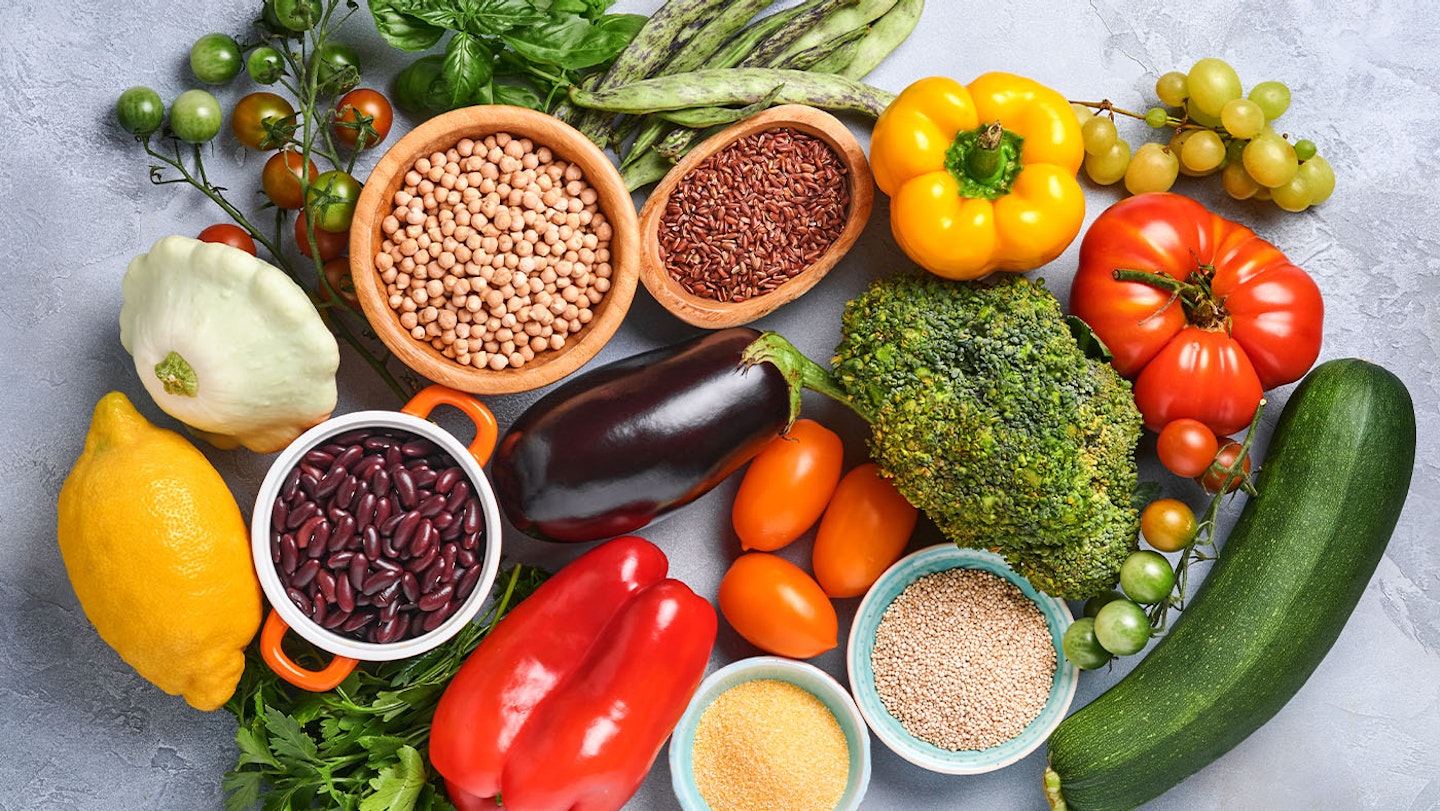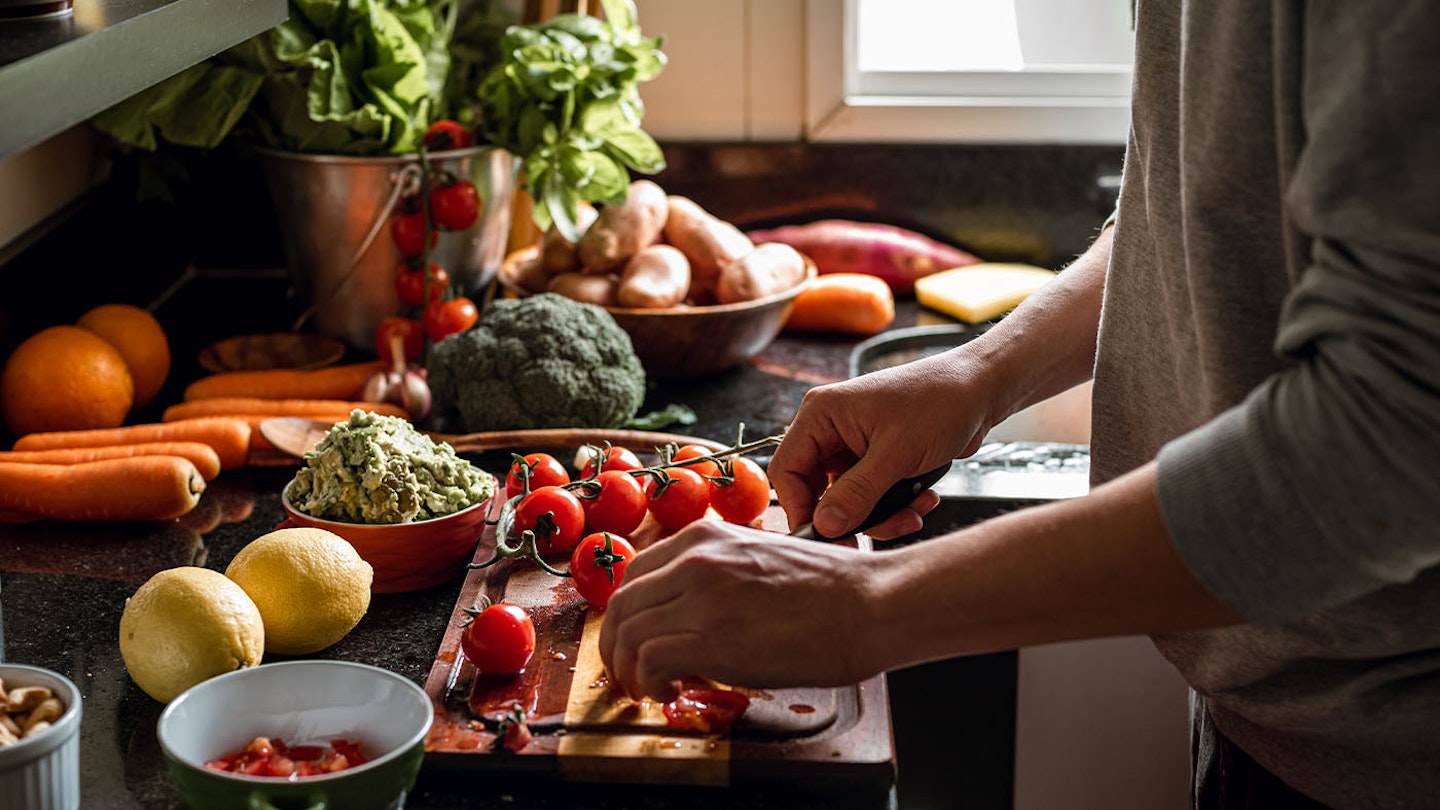Here at Yours we’re always looking for simple ways to live a more healthier life, which is why we’re very intrigued about the latest nutritional advice telling us we should all be eating 30 plants a week.
According to the leading nutritionists including Zoe’s Professor Tim Spector, eating 30 plants a week is great for boosting your gut health and as a result, may give you other health benefits.
Although 30 plants may seem a lot, it doesn’t just mean fruit and veggies as things like nuts, seeds and spices also count towards your 30 plants a week, so it might be easier than you think to achieve your 30 a week.
Kerry Beeson, Nutritional Therapist at Prep Kitchen says “Although it seems like a lot, the 30 day challenge really only means including around 4 different plant-based foods each day.
“There’s a vast range of plant foods to choose from, it’s not only fruit and vegetables. I’d still recommend trying to eat at least 5-7 different fruits and vegetables daily, but you can top up your plant-based food intake with everything from nuts, seeds, grains, beans, lentils, healthy fats (e.g. olive oil, avocado oil, walnut oil, flax oil), fresh and dried herbs, and spices. “Although technically ‘plant-based’, you should still limit consumption of sugar, and refined carbohydrates such as white bread, cakes, biscuits, white pasta etc.”
What are the benefits of eating 30 plants a week?

There are many health and wellness benefits of eating more plants and according to Kerry, can even lower your risk of developing serious diseases.
Lower risk of diseases
“Plant-based food sources are positively associated with numerous health benefits for conditions like high blood pressure, diabetes, cardiovascular disease, obesity, and even cancer. Research suggests that these benefits increase the more plant-based foods you eat, so more is definitely more!”
Gut health
“Your good gut bacteria love to feast on plant foods, so eating more can help to support your gut microbiome. A healthy gut microbiome is an important factor for overall health and wellbeing.” Says Kerry.
Immune function
“As 70% of the immune system is in the gut, improving gut health can also help to support immunity. Many plant-based foods and vegan recipes also contain compounds such as polysaccharides, polyphenols and flavonoids, which have been shown to boost the immune system.
Anti-inflammatory
“Research indicates that plant-based foods can help to lower inflammation markers in the body as they are naturally rich in anti-inflammatory nutrients, such as antioxidants, omega-3 fatty acids, and fibre. The anti-inflammatory effects are increased if you’re reducing consumption of inflammatory processed meats, such as sausages and bacon, with plant-based protein sources.
Environmental factors
“Plant-based foods have been shown to be more environmentally friendly Production of plant-based foods has been shown to be more sustainable with less of an impact on the environment, producing fewer greenhouse gas emissions, using less land, and creating less pollution.
Increased fibre
“Fibre has a multitude of health benefits: it can help digestion, aid in weight loss, keep your blood sugar balanced, lower cholesterol and feed your good gut bacteria. Animal foods don’t contain any fibre, whereas most plant-based foods do.
Diversifies your diet
“Makes your diet more interesting. Plant foods are colourful, delicious, and full of different tastes and textures. Adding your 30-a-week can give your diet an overhaul by inspiring you to try new recipes; reviving old favourite recipes by adding new herbs and spices, swapping out pasta for quinoa, and exploring new protein sources like lentils, nuts, or tofu.”
What counts as 30 plants?

You’ll be surprised how many different plants you can count in your 30 per week that you can incorporate into quick and healthy meals.
Jenna Hope, Registered Nutritionist and Author of How To Stay Healthy says you can get more than enough plant points in for each day in one simple and nutritious meal.
“Whilst consuming 30 different plants can sound daunting at first it’s important to note, that this encompasses a wide rage of foods and is not limited to just fruits and vegetables. Alongside fruits and vegetables, beans, pulses, wholegrains, nuts, seeds and even your dried herbs and spices count too! For example, a sweet potato and carrot curry with chickpeas, chopped tomatoes, onions, garlic, turmeric, paprika and garam masala contains 9 plant points! This is a simple example how consuming a variety of plants doesn’t have to be overwhelming or challenging.”
Also, unlike your five-a-day when it has to be a specific portion size, there’s no specified amount for your 30 plants so it could just be a small pinch of a herb a few times a week to count towards your 30 a week.
Vegetables including carrots, mushrooms, sweet potato, peas, broccoli, red onion, kale and red pepper, all of which can be easily incorporated into easy vegetarian meals.
Fruits including apples, oranges, kiwis, strawberries, blueberries, bananas, dates, pears.
Pulses, beans and peas including chickpeas, kidney beans, black beans, lentils, butterbeans.
Grains including quinoa, oats, wholegrain bread, barley and buckwheat which are all easy to incorporate into a healthy balanced breakfast.
Nuts and seeds including almonds, walnuts, cashews, pistachios, hazelnuts plus sunflower, pumpkin, sesame, poppy and chia seeds which all make good low calorie snacks too.
Herbs and spices including basil, mint, parsley, turmeric, coriander, oregano, sage, rosemary, black pepper, paprika, ginger, cumin, nutmeg.
Are there any downsides to eating 30 plants per week?

While there are many benefits to getting all this nutrition in your diet each week, any changes in the types of food you eat can cause changes to your bowel habits according to Nutritional Therapist Kerry.
“If you’re not used to eating lots of fruit, veg, nuts, etc, you may find you initially experience digestive changes or even a little discomfort, and maybe a change in bowel habits. This is normal as the gut microbiome changes, and will settle down, but initially it can be off-putting. To avoid this, gradually increase each week, rather than going all-in with 30 new plant foods in the first week.
Most people start a new diet with the best of intentions but often find they struggle to keep it going for prolonged periods. When making healthy lifestyle changes, it’s best to keep your goals achievable and sustainable in order to maintain a healthy diet in the long term.
“30 seems like a lot!” Says Kerry. “Don’t be disheartened if you don’t reach your 30 plant goal each week, especially initially. Look at it as a gradual lifestyle change, not a faddy diet to try. Any positive changes you can make are significant; don’t be too hung up on the numbers.”
It’s also important to remember that the 30 plants a week diet shouldn’t replace other food groups as you want to ensure you’re eating a well-balanced diet says Kerry. “Plant foods are packed with nutrients but have a different nutritional profile to animal-based products. Make sure you still prioritise your daily intake of protein, carbohydrates and fats, sticking to a general guideline of around 45–65% of your daily calories from carbs, 20–35% from fats and 10–35% from protein. If you have a serious health condition, it’s best to speak to your doctor before making radical changes to your diet.”
And remember, if you’re not used to cooking with a range of different plant-based foods, then get inspired with some new recipe books full of vegetarian meal ideas and easy ways to incorporate more plants into your diet. “It's not always obvious how to use unfamiliar foods. Start with a few new recipes; invest in an inviting cookery book, ask friends and family for tips, and look online for inspiration.” Says Kerry.
About the experts:
Kerry Beeson is an experienced health and science writer and a qualified Nutritional Therapist with a BSc in Nutritional Medicine and an extensive knowledge of dietary supplements, nutritional therapy and counselling specialising in probiotics and gut health.
Jenna Hope (RNutr) is a Registered Nutritionist. She has a first-class undergraduate degree and a masters degree from The University of Surrey. She works closely with brands, corporates and individuals to help them implement smarter strategies for Nutrition.
Lorna White is a Senior Digital Writer at Yours.co.uk. She was previously a writer at Yours Magazine writing features and news stories before joining the digital team. Lorna loves the great British countryside and likes to spend her spare time out and about in her home of Nottinghamshire walking her dog, Pippin.
